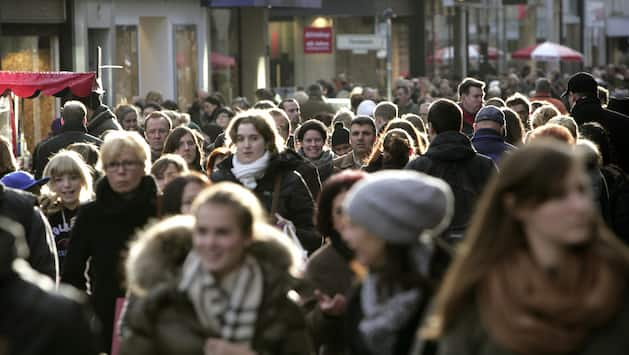Around 1.4 million people can also apply for housing benefit from January 1st. Because a lack of staff and sluggish digitization are slowing down the offices, many of them have to wait months for their money.
As urgently as many people in Germany long for an average of around 370 euros in housing benefit, which the federal government wants to pay them out to support them against price increases, there have been increasing signs for a long time that a large number of them will have to wait a long time for their money.
“Everyone will get their money at some point, but it will take time and mistakes will happen,” warned Lutz Goebel, chairman of the Regulatory Control Council, to Welt am Sonntag at the end of November. The chairman of the German tax union, Florian Köbler, spoke at about the same time of a “shameless mess” and the president of the Association of North German Housing Companies (VNW), Andreas Breitner, in mid-December of “chaos with announcement”. Breitner: “Especially in January and February, when financially weak households need more money because of increased heating costs, they will not receive it.” Despite warnings, there seems to be no all-clear in sight.
The delay is caused by the authorities being overwhelmed. In order to relieve households with low incomes in times of high price increases, the federal government expanded the group of recipients of housing benefit from around 600,000 to almost two million people at the end of November. Offices that are supposed to cope with the additional flood of applications after a short period of preparation are already working on the attack in view of further aid programs. The additional burden of housing benefit overburdens them. More and more experts warn that it can take time for the officials to process all the applications.
The federal government took countermeasures in mid-December: simplified application procedures are intended to bring housing benefit to people more quickly. According to the Ministry of Building, the housing benefit can in principle also be applied for by telephone or informal e-mail in the future. With a simplified check, it can also be paid out provisionally. There is also a de minimis clause for reclaiming too much or wrongly paid housing benefit up to an amount of 50 euros. The housing benefit is a rent subsidy for people above the basic security level.
The changes should bring about an improvement. Apparently they don’t solve all the problems for three reasons.
Firstly, many beneficiaries continued to fail in the application, said the President of the German Caritas Association, Eva Maria Welskop-Deffaa, a good week and a half after the decision to simplify the “Neue Osnabrücker Zeitung”. There was a lack of consultants and mediators to help with the process. Politics must take into account that coping with everyday life is currently so demanding that people lack the time and energy to deal with political decisions at the same time, Welskop-Deffaa.
Second, simplified applications must also be processed and explained. Many authorities simply do not have the time for this, as the example of Mecklenburg-Western Pomerania makes clear: There are currently 121 housing benefit offices in the state that, in addition to their normal work, are supposed to cope with the onslaught of the more than tripled number of people entitled to housing benefit, says VNW President Breitner. He calls for reforms that relieve the offices, such as the creation of a central housing benefit office
Thirdly, the “simply messed up” digitization of the administration is now taking revenge, says Regulatory Control Council Chairman Goebel. The system is too complex to be able to pay out recipients quickly and easily. The chairman of the expert committee that advises the federal government on reducing bureaucracy and legislation says: “When it comes to the nitty gritty, the federal, state and local governments stand in each other’s way.”
From the beginning of 2023, households with a low income will receive an average housing benefit of around 370 euros. Anyone who lives alone and receives housing benefit should receive a one-off payment of 135 euros, a two-person household 175 euros. For each additional person in the household there is an additional 35 euros. A flat rate of 115 euros per person is provided for students and trainees. As a result of a reform, two million households are to benefit from this support from January 2023. The housing allowance increases on average from 177 euros to 190 euros.
Households that do not receive social benefits but still have little money can apply for housing benefit. In the new year, significantly more people will be entitled to this state rent subsidy.








